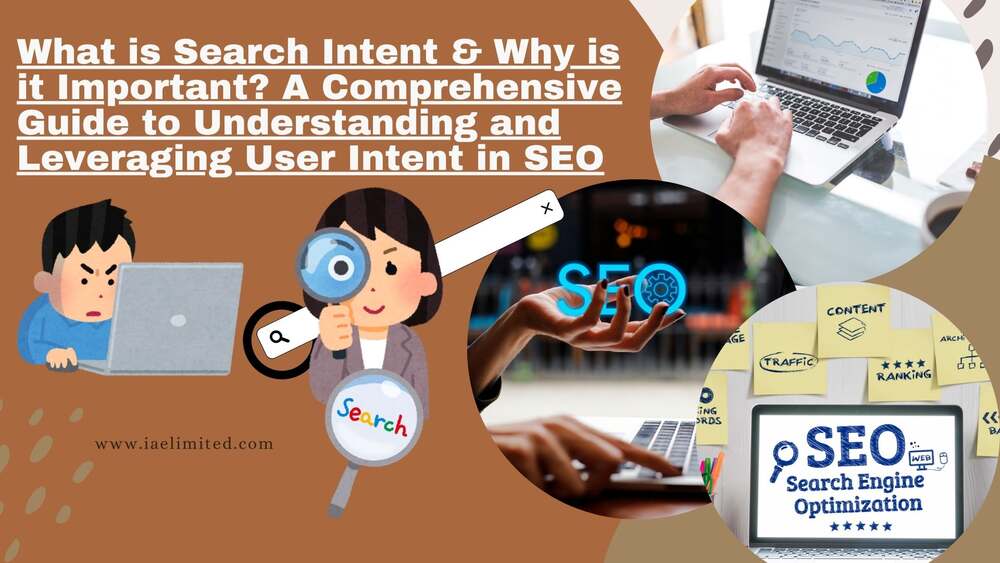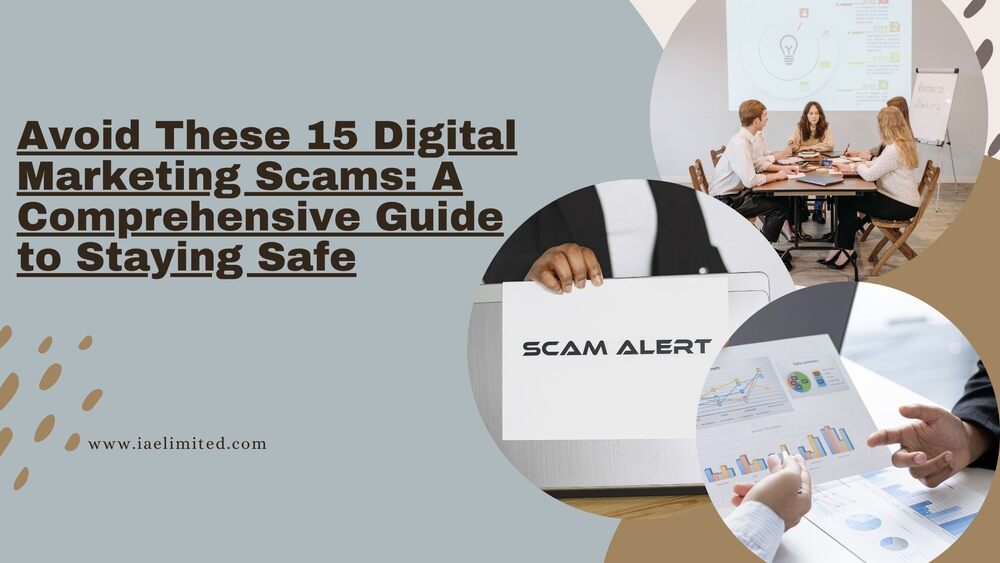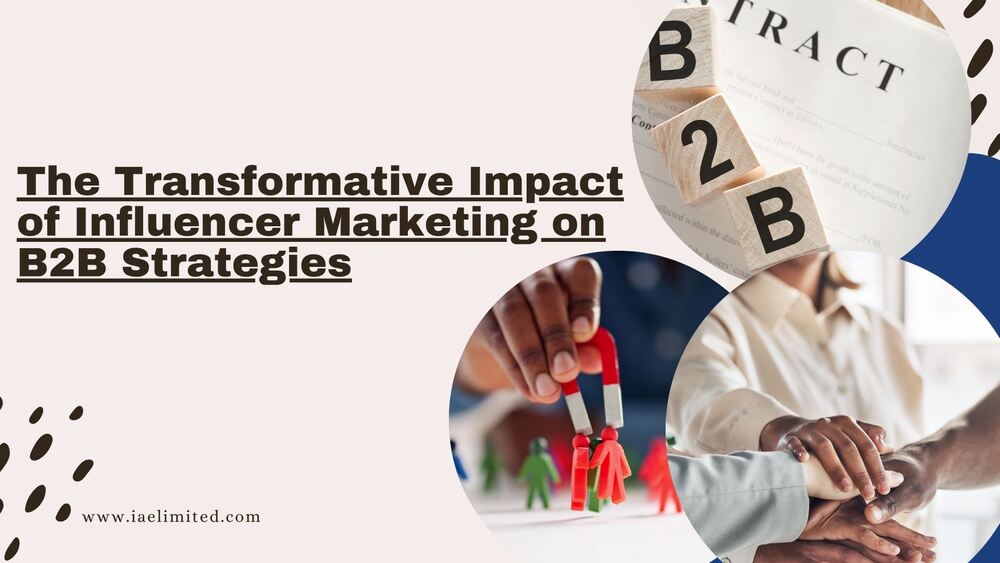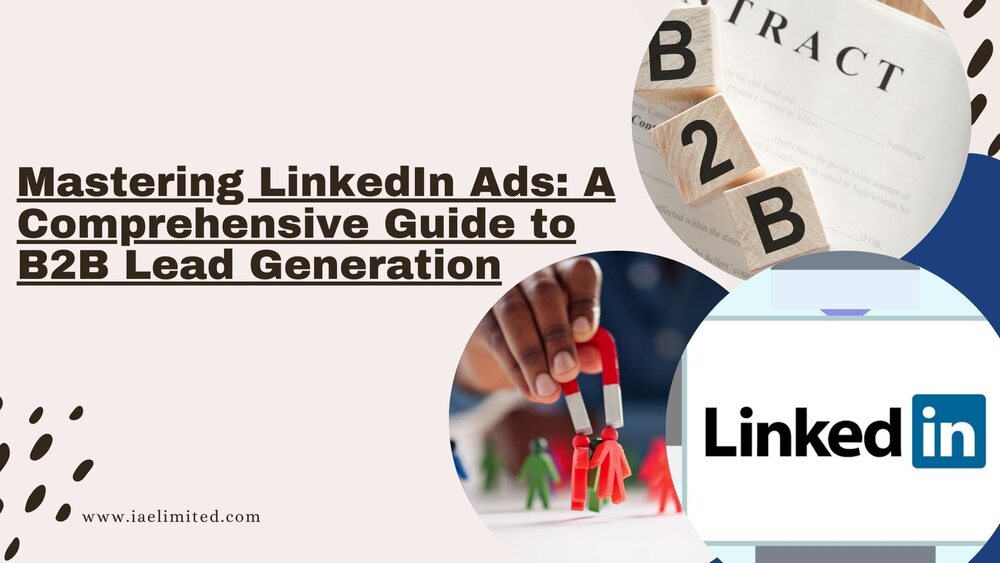
Introduction to B2B Marketing
Table of Contents
What is B2B Marketing?
B2B marketing, or business-to-business marketing, refers to the strategies and tactics that businesses use to promote their products or services to other businesses.
Unlike B2C (business-to-consumer) marketing, which focuses on selling to individual consumers, B2B marketing targets businesses that need the products or services to operate, grow, or improve their own offerings.
Importance of B2B Marketing in Today’s Business Landscape
In the modern business environment, B2B marketing plays a crucial role. It helps companies build relationships with other businesses, expand their market reach, and increase sales. Effective B2B marketing can lead to long-term partnerships and steady revenue streams, which are essential for business sustainability.
Differences Between B2B and B2C Marketing
While both B2B and B2C marketing share common goals, such as brand awareness and sales growth, they differ significantly in execution. B2B marketing often involves longer sales cycles, larger transaction sizes, and a more complex decision-making process. B2B buyers are typically looking for value, efficiency, and ROI, rather than emotional appeal, which is more common in B2C marketing.
Type 1: Digital Marketing
Understanding Digital Marketing in a B2B Context
Digital marketing in B2B involves using online channels to reach business buyers. This includes search engine optimization (SEO), email marketing, social media, and online advertising. The goal is to create a digital presence that attracts, engages, and converts potential business customers.
Key Digital Marketing Strategies for B2B Companies
Effective digital marketing strategies for B2B include creating high-quality content that addresses the needs and pain points of business customers, optimizing websites for search engines, using email campaigns to nurture leads, and leveraging social media platforms like LinkedIn to connect with decision-makers.
Benefits of Digital Marketing for B2B Businesses
Digital marketing allows B2B companies to reach a global audience, track performance in real-time, and personalize their marketing efforts. It’s cost-effective compared to traditional marketing methods and offers a measurable return on investment. Companies can also adapt their strategies quickly based on data insights.
Challenges in Implementing Digital Marketing for B2B
While digital marketing offers many advantages, it also presents challenges. B2B marketers must navigate complex sales funnels, ensure their content resonates with diverse decision-makers, and keep up with ever-changing digital trends. Additionally, measuring the success of digital marketing efforts can be difficult without the right tools and expertise.
Type 2: Content Marketing
What is Content Marketing in B2B?
Content marketing in B2B involves creating and distributing valuable, relevant content to attract and engage a target audience. This content can take many forms, including blog posts, white papers, case studies, videos, and infographics. The goal is to build trust with potential customers and position the company as a thought leader in its industry.
Essential Content Marketing Strategies for B2B
Key strategies for B2B content marketing include understanding the target audience, creating content that addresses their specific challenges, and distributing that content across multiple channels. It’s also important to use data to inform content creation and to regularly update and repurpose content to keep it fresh and relevant.
Types of Content That Work Best in B2B Marketing
Some of the most effective types of content for B2B marketing include:
- White Papers and E-books: These in-depth resources help educate potential customers about complex topics.
- Case Studies: These demonstrate the effectiveness of a product or service through real-world examples.
- Webinars: These live or recorded events provide valuable insights and allow for direct engagement with the audience.
How to Create a Successful B2B Content Marketing Plan
To create a successful B2B content marketing plan, start by defining your goals and understanding your audience. Develop a content calendar that outlines what content you will create, when you will publish it, and how you will promote it. Ensure your content is optimized for SEO and includes calls-to-action (CTAs) that guide readers through the buyer’s journey.
Measuring the Success of B2B Content Marketing
Measuring the success of B2B content marketing involves tracking key metrics such as website traffic, lead generation, conversion rates, and social media engagement. Use tools like Google Analytics to monitor performance and make data-driven decisions to improve your content marketing efforts.
Type 3: Account-Based Marketing (ABM)
Introduction to Account-Based Marketing (ABM)
Account-Based Marketing (ABM) is a highly targeted approach where marketing efforts are focused on specific high-value accounts. Instead of casting a wide net, ABM tailors campaigns to meet the unique needs of individual accounts, often involving personalized messaging and content.
The Role of ABM in B2B Marketing Strategies
ABM plays a critical role in B2B marketing by aligning sales and marketing teams to target and convert high-value accounts. It allows for a more personalized approach, leading to higher engagement rates and a better return on investment. ABM is especially effective for businesses with a limited number of high-value prospects.
Steps to Implement a Successful ABM Strategy
To implement a successful ABM strategy, start by identifying your target accounts. Next, collaborate with sales teams to develop personalized content and messaging that resonates with those accounts. Use technology to deliver and measure your campaigns, ensuring you can adjust your approach based on real-time data.
Tools and Technologies for Effective ABM
Effective ABM requires the use of tools like customer relationship management (CRM) software, marketing automation platforms, and data analytics tools. These technologies help marketers segment their target accounts, deliver personalized content, and track the success of their campaigns.
Case Studies of Successful ABM in B2B
Several companies have successfully implemented ABM strategies, leading to significant business growth. For example, LinkedIn’s ABM strategy helped them increase engagement with their most valuable accounts by 50%. By focusing on personalized content and targeted outreach, they were able to build stronger relationships with key customers.
Type 4: Influencer Marketing
What is Influencer Marketing in B2B?
Influencer marketing in B2B involves partnering with industry experts or thought leaders to promote products or services. Unlike B2C influencer marketing, which often involves celebrities or social media stars, B2B influencers are typically respected professionals with a strong presence in the industry.
Identifying the Right Influencers for B2B Marketing
To identify the right influencers for B2B marketing, look for individuals who have a deep understanding of your industry and a large, engaged following. These influencers should align with your brand values and be able to communicate your message effectively to their audience.
Strategies for Effective B2B Influencer Marketing
Effective B2B influencer marketing strategies include co-creating content with influencers, sponsoring their events or webinars, and leveraging their networks to reach new audiences. It’s important to build long-term relationships with influencers to ensure consistent and authentic promotion.
Challenges and Risks of B2B Influencer Marketing
While B2B influencer marketing can be highly effective, it also comes with challenges. These include finding the right influencers, managing relationships, and ensuring that the content created is authentic and aligns with your brand. There is also the risk that influencers may not deliver the expected results.
Measuring ROI in B2B Influencer Marketing
Measuring the ROI of B2B influencer marketing involves tracking metrics such as lead generation, engagement rates, and brand awareness. Use tools like BuzzSumo to monitor the impact of your influencer campaigns and adjust your strategies as needed.
Integrating the 4 Types of B2B Marketing
Why Integration is Key to B2B Marketing Success
Integrating the four types of B2B marketing is key to achieving success. By combining digital marketing, content marketing, ABM, and influencer marketing, businesses can create a cohesive strategy that reaches their target audience at every stage of the buyer’s journey.
Steps to Create an Integrated B2B Marketing Strategy
To create an integrated B2B marketing strategy, start by aligning your marketing goals with your business objectives. Next, develop a unified message that can be communicated across all channels. Finally, use data to continuously optimize your strategy and ensure all marketing efforts are working together to achieve your goals.
Case Studies of Integrated B2B Marketing Success
Many companies have achieved significant success by integrating their B2B marketing efforts. For instance, IBM’s integrated marketing approach combines digital, content, ABM, and influencer marketing to reach decision-makers in the tech industry. This approach has helped them increase brand awareness and drive sales growth.
The Future of B2B Marketing
Emerging Trends in B2B Marketing
The future of B2B marketing is being shaped by several emerging trends, including the increased use of artificial intelligence, the rise of personalized marketing, and the growing importance of customer experience. Businesses that stay ahead of these trends will be better positioned to succeed in a competitive market.
The Role of AI and Automation in B2B Marketing
AI and automation are revolutionizing B2B marketing by enabling businesses to personalize their marketing efforts at scale. From chatbots that provide instant customer support to AI-powered tools that predict customer behavior, these technologies are helping businesses engage with their audience more effectively.
Predictions for the Next Decade of B2B Marketing
Over the next decade, B2B marketing is expected to become more data-driven, with an increased focus on customer experience and personalized marketing. Companies that leverage AI and automation will have a competitive advantage, as they will be able to deliver more relevant and timely content to their audience.
In Conclusion
In case you missed it, we recently published a post on, all you need to know about b2b marketing. In this article write about how to succeed in B2B Social Media Marketing.

Recap of the 4 Types of B2B Marketing
In this article, we’ve explored the four main types of B2B marketing: digital marketing, content marketing, account-based marketing, and influencer marketing. Each type offers unique benefits and challenges, but when integrated effectively, they can help businesses reach their target audience and achieve their marketing goals.
Final Thoughts on Choosing the Right B2B Marketing Strategies
Choosing the right B2B marketing strategies depends on your business goals, target audience, and resources. It’s important to experiment with different approaches, measure your results, and continuously optimize your efforts to achieve the best outcomes.
Call to Action: Next Steps for Implementing B2B Marketing Strategies
Ready to implement these B2B marketing strategies? Start by assessing your current marketing efforts and identifying areas for improvement. Whether you’re looking to enhance your digital presence, create compelling content, or build relationships with key accounts, these strategies can help you succeed in the B2B space.
Frequently Asked Questions (FAQs)
What is the most effective type of B2B marketing?
The most effective type of B2B marketing depends on your business and audience. However, many businesses find success with a combination of content marketing and ABM, as these strategies allow for personalized engagement with high-value accounts.
How do I choose the right B2B marketing strategy for my business?
To choose the right B2B marketing strategy, start by understanding your target audience and business goals. Experiment with different approaches, measure your results, and refine your strategy based on what works best for your business.
What are the common challenges in B2B marketing?
Common challenges in B2B marketing include long sales cycles, complex decision-making processes, and the need to personalize content for diverse stakeholders. Overcoming these challenges requires a strategic approach and the right tools and technologies.
How can small businesses implement B2B marketing effectively?
Small businesses can implement B2B marketing effectively by focusing on high-impact strategies like content marketing and digital marketing. Leveraging technology and data can also help small businesses compete with larger companies in the B2B space.
What role does technology play in B2B marketing?
Technology plays a crucial role in B2B marketing by enabling businesses to reach and engage with their target audience more effectively. From CRM software to AI-powered tools, technology helps businesses automate processes, personalize marketing efforts, and measure success.





